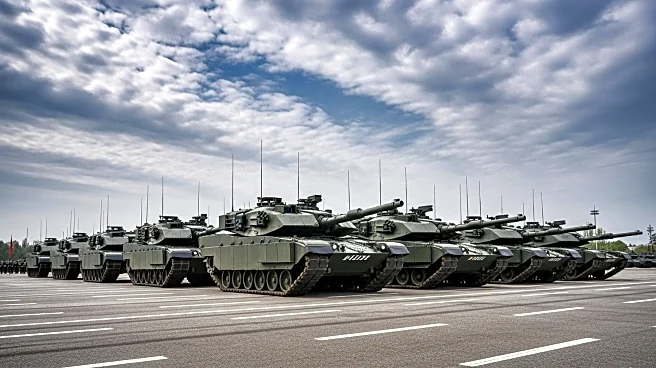What's Happening?
Chinese leader Xi Jinping showcased a massive military parade in Beijing, attended by Russian President Vladimir Putin and North Korean leader Kim Jong Un, among others. The event, held at Tiananmen Square, was broadcast to a global audience, emphasizing China's growing military capabilities and its vision for a new world order. Xi's speech highlighted his belief that the current international system, led by the US, is responsible for global conflicts. The parade featured advanced military technology, including nuclear-capable missiles and combat drones, signaling China's ability to project power globally.
Why It's Important?
The parade underscores China's ambition to reshape the global order, challenging the US's dominance. By aligning with Russia and North Korea, China is positioning itself as a leader of an alternative international system. This development could impact US foreign policy and its alliances, as China seeks to dilute US influence by rallying support from countries dissatisfied with the current system. The military display also raises concerns about China's intentions towards Taiwan and its territorial claims in the South China Sea, potentially escalating regional tensions.
What's Next?
China's actions may prompt the US and its allies to strengthen their military presence in Asia, countering China's growing influence. The US may also seek to reinforce its alliances and partnerships to maintain its leadership in the international system. Additionally, China's internal challenges, such as economic slowdown and unemployment, could influence its foreign policy decisions, potentially leading to more aggressive posturing to rally domestic support.
Beyond the Headlines
The parade reflects China's strategic use of nationalism to bolster internal stability amid economic challenges. It also highlights the ethical and geopolitical implications of China's rise, as it seeks to redefine global governance in ways that prioritize national development over individual human rights. This shift could have long-term consequences for international norms and the balance of power.









